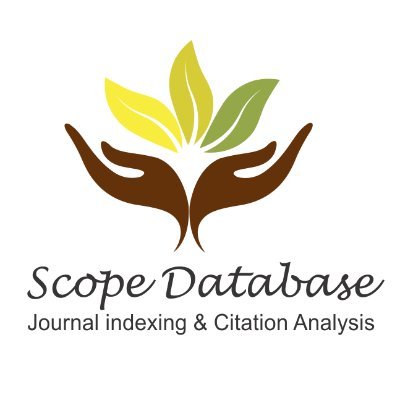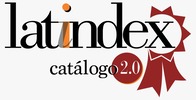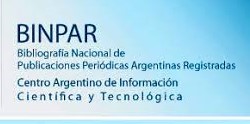Uso de las ciencias del comportamiento en políticas públicas: perspectivas desde la pandemia
DOI:
https://doi.org/10.32654/CONCIENCIAEPG.7-1.7Palabras clave:
ciencias del comportamiento, behavioral insights, pandemia, políticas públicas.Resumen
Existe un creciente interés en aplicar los hallazgos de las ciencias del comportamiento a los desafíos de formulación de políticas públicas debido a su bajo costo y alto impacto en el corto plazo. Experiencias previas han mostrado los beneficios de utilizar las ciencias del comportamiento en políticas de salud tales como lograr adherencia a tratamientos crónicos. En el contexto de la pandemia del COVID-19, se ha reforzado la importancia de estas medidas para contener la expansión de la enfermedad y promover la vacunación de la población. El objetivo de este trabajo es repasar la evidencia de las ciencias del comportamiento en el control de la pandemia. Asimismo, se realiza una breve discusión sobre cómo aplicarlo a futuro de forma sistemática en las políticas públicas, realizando un recorrido por experiencias realizadas en otros países, haciendo foco en la promoción del proceso vacunatorio.
Descargas
Referencias
Akesson, J., Ashworth-Hayes, S., Hahn, R., Metcalfe, R. D., & Rasooly, I. (2020). Fatalism, beliefs, and behaviors during the COVID-19 pandemic. National Bureau of Economic Research. https://www.doi.org/10.3386/w27245
Ashraf, N. (2013). Rx: Human nature. Harvard business review, 91(4), 119-123, 125, 143. PMID: 23593771
Behavioural Insights Team. (2010). Applying behavioural insight to health. London: Cabinet Office. https://assets.publishing.service.gov.uk/government/uploads/system/uploads/attachment_data/file/60524/403936_BehaviouralInsight_acc.pdf
Behavioural Insights Team. (2013). Applying behavioural insights to charitable giving. Cabinet Office, 1-25. https://good2give.ngo/wp-content/uploads/2016/04/CAF_Charitable_Giving_Report_May_2013.pdf
Behavioural Insights Team. (2014). EAST: Four simple ways to apply behavioural insights. Behavioural Insight Team, London. https://www.bi.team/publications/east-four-simple-ways-to-apply-behavioural-insights/
Behavioral Insights Team. (2019, October 1). Aprendizajes conductuales para las ciudades. Caracas: Behavioral Insights Team. http://scioteca.caf.com/handle/123456789/1470
Betsch, C., Wieler, L. H., & Habersaat, K. (2020). Monitoring behavioural insights related to COVID-19. The Lancet, 395(10232), 1255-1256. https://doi.org/10.1016/S0140-6736(20)30729-7
Bettinger, E. P., Long, B. T., Oreopoulos, P., & Sanbonmatsu, L. (2012). The role of application assistance and information in college decisions: Results from the H&R Block FAFSA experiment. The Quarterly Journal of Economics, 127(3), 1205-1242. https://doi.org/10.1093/qje/qjs017
Bicchieri, C., & Dimant, E. (2019). Nudging with care: The risks and benefits of social information. Public choice, 1-22. https://doi.org/10.1007/s11127-019-00684-6
Bowles, J., Larreguy, H., & Liu, S. (2020). Countering misinformation via WhatsApp: Preliminary evidence from the COVID-19 pandemic in Zimbabwe. PloS one, 15(10), e0240005. https://doi.org/10.1371/journal.pone.0240005
Brockmeyer, A., Kettle, S., & Smith, S. D. (2016). Casting the tax net wider: Experimental evidence from Costa Rica. World Bank policy research working paper, 7850. https://ssrn.com/abstract=2849142
Brooks, S. K., Webster, R. K., Smith, L. E., Woodland, L., Wessely, S., Greenberg, N., & Rubin, G. J. (2020). The psychological impact of quarantine and how to reduce it: Rapid review of the evidence. The lancet, 395(10227), 912-920. https://doi.org/10.1016/S0140-6736(20)30460-8
Cahill, K., & Perera, R. (2011). Competitions and incentives for smoking cessation. Cochrane Database of Systematic Reviews, 4. https://doi.org/10.1002/14651858.CD004307.pub4
Calvo-González, O., & Zoratto, L. (2017). Behavioral insights for development: Cases from Central America. World Bank Publications. http://hdl.handle.net/10986/28335
Cartaud, A., Quesque, F., & Coello, Y. (2020). Beware of virus! Wearing a face mask against COVID-19 results in a reduction of social distancing. 10.31234/osf.io/ubzea
Castro, L., & Scartascini, C. (2015). Tax compliance and enforcement in the pampas evidence from a field experiment. Journal of Economic Behavior & Organization, 116, 65-82. https://publications.iadb.org/publications/english/document/Tax-Compliance-and-Enforcement-in-the-Pampas-Evidence-from-a-Field-Experiment.pdf
Committee, I.-A. S. (2020). Briefing note on addressing mental health and psychosocial aspects of COVID-19 OutbreakVersion 1.1. https://www.socialserviceworkforce.org/resources/briefing-note-addressing-mental-health-and-psychosocial-aspects-covid-19-outbreak-version
Datta, S., Miranda, J. J., Zoratto, L., Calvo‐González, O., Darling, M., & Lorenzana, K. (2015). A Behavioral Approach to Water Conservation: Evidence from Costa Rica (SSRN Scholarly Paper ID 2613750). Social Science Research Network. https://papers.ssrn.com/abstract=2613750
De Ridder, D., Feitsma, J., Van Den Hoven, M., Kroese, F., Schillemans, T., Verweij, M., Venema, T., Vugts, A., & De vet, E. (2020). Simple nudges that are not so easy. Behavioural Public Policy, 1-19. https://doi.org/doi:10.1017/bpp.2020.36
Duan, L., & Zhu, G. (2020). Psychological interventions for people affected by the COVID-19 epidemic. The Lancet Psychiatry, 7(4), 300-302. https://doi.org/10.1016/S2215-0366(20)30073-0
Edge, J. A., Jakes, R. W., Roy, Y., Hawkins, M., Winter, D., Ford-Adams, M. E., Murphy, N. P., Bergomi, A., Widmer, B., & Dunger, D. B. (2006). The UK case–control study of cerebral oedema complicating diabetic ketoacidosis in children. Diabetologia, 49(9), 2002-2009. https://doi.org/10.1007/s00125-006-0363-8
Escandón, K., Rasmussen, A. L., Bogoch, I., Murray, E. J., & Escandón, K. (2020). COVID-19 and false dichotomies: Time to change the black-or-white messaging about health, economy, SARS-CoV-2 transmission, and masks. BMC Infectious Diseases, 21, 710 https://doi.org/10.1186/s12879-021-06357-4
Festinger, L. (1962). A Theory of Cognitive Dissonance. Vol. 2 Stanford University Press. Stanford, CA, USA.
Finset, A., Bosworth, H., Butow, P., Gulbrandsen, P., Hulsman, R. L., Pieterse, A. H., Street, R., Tschoetschel, R., & van Weert, J. (2020). Effective health communication–a key factor in fighting the COVID-19 pandemic. Patient education and counseling, 103(5), 873. https://dx.doi.org/10.1016%2Fj.pec.2020.03.027
Fiorillo, A., & Gorwood, P. (2020). The consequences of the COVID-19 pandemic on mental health and implications for clinical practice. European Psychiatry, 63(1). https://doi.org/10.1192/j.eurpsy.2020.35
Fiszbein, A., & Schady, N. R. (2009). Conditional cash transfers: Reducing present and future poverty. World Bank Publications. http://hdl.handle.net/10986/2597
Galea, S., Merchant, R. M., & Lurie, N. (2020). The mental health consequences of COVID-19 and physical distancing: The need for prevention and early intervention. JAMA internal medicine, 180(6), 817-818. http://doi.org/10.1001/jamainternmed.2020.1562
Galizzi, M. M. (2017). Behavioral aspects of policy formulation: Experiments, behavioral insights, nudges. En Handbook of policy formulation (pp. 410-430). Edward Elgar Publishing.
Gao, J., Zheng, P., Jia, Y., Chen, H., Mao, Y., Chen, S., Wang, Y., Fu, H., & Dai, J. (2020). Mental health problems and social media exposure during COVID-19 outbreak. Plos one, 15(4), e0231924. https://doi.org/10.1371/journal.pone.0231924
García Prado, A. (2016). How to Change Behavior to Improve Maternal and Neonatal Health in Rural Areas of Latin America. Research Departament, Technical Note IDB-TN-1071, Inter-American Development Bank, Washington DC. https://publications.iadb.org/en/publication/17202/how-change-behavior-improve-maternal-and-neonatal-health-rural-areas-latin
García Zaballos, A., Iglesias, E., Prado, G., Árias, G., Huici, H., Puig, P., Martínezgarza, R., & Cabello, S. (2020). Digitalización: Herramienta de defensa ante la crisis del Covid-19 y para el desarrollo sostenible. Inter-American Development Bank. https://doi.org/10.18235/0002356
Garfin, D. R., Silver, R. C., & Holman, E. A. (2020). The novel coronavirus (COVID-2019) outbreak: Amplification of public health consequences by media exposure. Health psychology. https://psycnet.apa.org/doi/10.1037/hea0000875
Greenberg, N., Docherty, M., Gnanapragasam, S., & Wessely, S. (2020). Managing mental health challenges faced by healthcare workers during covid-19 pandemic. bmj, 368. https://doi.org/10.1136/bmj.m1211
Hallsworth, M., & Kirkman, E. (2020). Behavioral insights. MIT Press.
Hallsworth, M., Snijders, V., Burd, H., Prestt, J., Judah, G., Huf, S., & Halpern, D. (2016). Applying behavioral insights: Simple ways to improve health outcomes. World Innovation Summit for Health, Doha, Qatar, 29–30 November. https://www.bi.team/publications/applying-behavioural-insights-simple-ways-to-improve-health-outcomes/
Halpern, D. (2015). Inside the nudge unit: How small changes can make a big difference. Random House.
Hossain, M. M., Sultana, A., & Purohit, N. (2020). Mental health outcomes of quarantine and isolation for infection prevention: A systematic umbrella review of the global evidence. Available at SSRN 3561265. https://dx.doi.org/10.4178%2Fepih.e2020038
Ienca, M., & Vayena, E. (2020). On the responsible use of digital data to tackle the COVID-19 pandemic. Nature medicine, 26(4), 463-464. https://doi.org/10.1038/s41591-020-0832-5
Imhoff, R., & Lamberty, P. (2020). A bioweapon or a hoax? The link between distinct conspiracy beliefs about the Coronavirus disease (COVID-19) outbreak and pandemic behavior. Social Psychological and Personality Science, 11(8), 1110-1118. https://doi.org/10.1177%2F1948550620934692
John, L. K., Loewenstein, G., Troxel, A. B., Norton, L., Fassbender, J. E., & Volpp, K. G. (2011). Financial incentives for extended weight loss: A randomized, controlled trial. Journal of general internal medicine, 26(6), 621-626. https://doi.org/10.1007/s11606-010-1628-y
Jordan, J., Yoeli, E., & Rand, D. (2020). Don’t get it or don’t spread it? Comparing self-interested versus prosocially framed COVID-19 prevention messaging. https://doi.org/10.31234/osf.io/yuq7x
Kahneman, D., & Egan, P. (2011). Thinking, fast and slow. vol. 1 Farrar. Straus and Giroux New York.
Kaslow, N. J., Friis-Healy, E. A., Cattie, J. E., Cook, S. C., Crowell, A. L., Cullum, K. A., Del Rio, C., Marshall-Lee, E. D., LoPilato, A. M., & VanderBroek-Stice, L. (2020). Flattening the emotional distress curve: A behavioral health pandemic response strategy for COVID-19. American Psychologist. https://psycnet.apa.org/doi/10.1037/amp0000694
Kessler, R. C., & Wittchen, H.-U. (2008). Post-disaster mental health need assessment surveys—The challenge of improved future research. International Journal of Methods in Psychiatric Research, 17 Suppl 2, S1-5. https://doi.org/10.1002/mpr.266
Kettle, S., Hernandez, M., Ruda, S., & Sanders, M. (2016). Behavioral interventions in tax compliance: Evidence from Guatemala. The World Bank. https://doi.org/10.1596/1813-9450-7690
King, D. L., Haagsma, M. C., Delfabbro, P. H., Gradisar, M., & Griffiths, M. D. (2013). Toward a consensus definition of pathological video-gaming: A systematic review of psychometric assessment tools. Clinical psychology review, 33(3), 331-342. https://doi.org/10.1016/j.cpr.2013.01.002
Klingensmith, G. J., Aisenberg, J., Kaufman, F., Halvorson, M., Cruz, E., Riordan, M. E., Varma, C., Pardo, S., Viggiani, M. T., & Wallace, J. F. (2013). Evaluation of a combined blood glucose monitoring and gaming system (Didget®) for motivation in children, adolescents, and young adults with type 1 diabetes. Pediatric diabetes, 14(5), 350-357. https://doi.org/10.1111/j.1399-5448.2011.00791.x
Kuper-Smith, B. J., Doppelhofer, L. M., Oganian, Y., Rosenblau, G., & Korn, C. (2020). Optimistic beliefs about the personal impact of COVID-19. https://doi.org/10.31234/osf.io/epcyb
Larkin, C., Sanders, M., Andresen, I., & Algate, F. (2018). Testing local descriptive norms and salience of enforcement action: A field experiment to increase tax collection. Available at SSRN 3167575. https://dx.doi.org/10.2139/ssrn.3167575
Lewandowsky, S., Ecker, U. K., Seifert, C. M., Schwarz, N., & Cook, J. (2012). Misinformation and its correction: Continued influence and successful debiasing. Psychological science in the public interest, 13(3), 106-131. https://doi.org/10.1177%2F1529100612451018
Lima, C. K. T., de Medeiros Carvalho, P. M., Lima, I. de A. A. S., de Oliveira Nunes, J. V. A., Saraiva, J. S., de Souza, R. I., da Silva, C. G. L., & Neto, M. L. R. (2020). The emotional impact of Coronavirus 2019-nCoV (new Coronavirus disease). Psychiatry research, 287, 112915. https://doi.org/10.1016/j.psychres.2020.112915
Liu, P. L. (2020). COVID-19 information seeking on digital media and preventive behaviors: The mediation role of worry. Cyberpsychology, Behavior, and Social Networking, 23(10), 677-682. https://doi.org/10.1089/cyber.2020.0250
Lourenço, J. S., Ciriolo, E., Almeida, S. R., & Troussard, X. (2016). Behavioural insights applied to policy: European Report 2016. Brussels: European Union.
Lunn, P. D., Belton, C. A., Lavin, C., McGowan, F. P., Timmons, S., & Robertson, D. A. (2020). Using Behavioral Science to help fight the Coronavirus. Journal of Behavioral Public Administration, 3(1). http://hdl.handle.net/10419/237928
Lunn, P. D., Timmons, S., Belton, C. A., Barjaková, M., Julienne, H., & Lavin, C. (2020). Motivating social distancing during the Covid-19 pandemic: An online experiment. Social Science & Medicine, 265, 113478. https://doi.org/10.1016/j.socscimed.2020.113478
Lunn, P. D., Timmons, S., Julienne, H., Belton, C. A., Barjaková, M., Lavin, C., & McGowan, F. P. (2020). Using decision aids to support self-isolation during the COVID-19 pandemic. Psychology & Health, 1-19. https://doi.org/10.1080/08870446.2020.1849701
Madrian, B. C. (2014). Applying insights from behavioral economics to policy design. Annu. Rev. Econ., 6(1), 663-688.
Martínez Villareal, D., Méndez, A. M. R., & Scartascini, C. (2020). La economía del comportamiento puede ayudar a combatir el coronavirus. Banco Interamericano del Desarrollo. http://dx.doi.org/10.18235/0002315
Mayer, S. E., Kalil, A., Oreopoulos, P., & Gallegos, S. (2015). Using behavioral insights to increase parental engagement: The parents and children together (PACT) intervention. National Bureau of Economic Research. https://doi.org/10.3386/w21602
OECD. (2017a). Behavioural insights and public policy. Lessons from Around the World, OECD Publishing, Paris, https://doi.org/10.1787/9789264270480-en.
OECD. (2017b). Use of Behavioural Insights in Consumer Policy. OECD Paris. https://doi.org/10.1787/c2203c35-en
OECD. (2019). Delivering Better Policies Through Behavioural Insights: New Approaches. OECD Publishing, Paris, https://doi.org/10.1787/6c9291e2-en
OECD. (2020). Tax Policy Reforms 2020: OECD and Selected Partner Economies (OECD Publishing). OECD. https://doi.org/10.1787/7af51916-en
Olson, O., Berry, C., & Kumar, N. (2020). Addressing Parental Vaccine Hesitancy towards Childhood Vaccines in the United States: A Systematic Literature Review of Communication Interventions and Strategies. Vaccines, 8(4), 590. https://doi.org/10.3390/vaccines8040590
Pennycook, G., McPhetres, J., Zhang, Y., Lu, J. G., & Rand, D. G. (2020). Fighting COVID-19 Misinformation on Social Media: Experimental Evidence for a Scalable Accuracy-Nudge Intervention. Psychological Science, 31(7), 770-780. https://doi.org/10.1177/0956797620939054
Rimal, R. N., & Real, K. (2003). Perceived risk and efficacy beliefs as motivators of change: Use of the risk perception attitude (RPA) framework to understand health behaviors. Human communication research, 29(3), 370-399. https://doi.org/10.1111/j.1468-2958.2003.tb00844.x
Rimal, R. N., & Storey, J. D. (2020). Construction of Meaning during a Pandemic: The Forgotten Role of Social Norms. Health communication, 35(14), 1732-1734. https://doi.org/10.1080/10410236.2020.1838091
Rudd, M., Aaker, J., & Norton, M. I. (2014). Getting the most out of giving: Concretely framing a prosocial goal maximizes happiness. Journal of Experimental Social Psychology, 54, 11-24. https://doi.org/10.1016/j.jesp.2014.04.002
Sanders, M. (2017). Social influences on charitable giving in the workplace. Journal of behavioral and experimental economics, 66, 129-136. https://doi.org/10.1016/j.socec.2015.12.004
Sanketh Andhavarapu. (2020, diciembre 7). A Behavioral Approach to COVID-19 Vaccine Hesitancy. The Decision Lab. https://thedecisionlab.com/insights/health/a-behavioral-approach-to-covid-19-vaccine-hesitancy/
Soper, G. A. (1919). The lessons of the pandemic. Science, 49(1274), 501-506. https://doi.org/10.1126/science.49.1274.501
Sunstein, C. R., Reisch, L. A., & Rauber, J. (2017). Behavioral insights all over the world? Public attitudes toward nudging in a multi-country study. Public Attitudes Toward Nudging in a Multi-Country Study (February 21, 2017). https://dx.doi.org/10.2139/ssrn.2921217
Surrey, S. S. (1970). Tax incentives as a device for implementing government policy: A comparison with direct government expenditures. Harvard Law Review, 705-738. https://doi.org/10.2307/1339837
Thaler, R. H., & Sunstein, C. R. (2009). Nudge: Improving decisions about health, wealth, and happiness. Penguin.
Tversky, A., & Kahneman, D. (1974). Judgment under uncertainty: Heuristics and biases. science, 185(4157), 1124-1131. https://doi.org/10.1126/science.185.4157.1124
Urzúa, A., Vera-Villarroel, P., Caqueo-Urízar, A., & Polanco-Carrasco, R. (2020). La Psicología en la prevención y manejo del COVID-19. Aportes desde la evidencia inicial. Terapia psicológica, 38(1), 103-118. http://dx.doi.org/10.4067/S0718-48082020000100103
Usher, K., Bhullar, N., & Jackson, D. (2020). Life in the pandemic: Social isolation and mental health. Wiley Online Library. https://doi.org/10.1111/jocn.15290
Van Bavel, J. J., Baicker, K., Boggio, P. S., Capraro, V., Cichocka, A., Cikara, M., Crockett, M. J., Crum, A. J., Douglas, K. M., & Druckman, J. N. (2020). Using social and behavioural science to support COVID-19 pandemic response. Nature human behaviour, 4(5), 460-471. https://doi.org/10.1038/s41562-020-0884-z
Vlaev, I., King, D., Dolan, P., & Darzi, A. (2016). The theory and practice of “nudging”: Changing health behaviors. Public Administration Review, 76(4), 550-561. https://doi.org/10.1111/puar.12564
Volpp, K. G., Troxel, A. B., Pauly, M. V., Glick, H. A., Puig, A., Asch, D. A., Galvin, R., Zhu, J., Wan, F., & DeGuzman, J. (2009). A randomized, controlled trial of financial incentives for smoking cessation. N Engl J Med, 360, 699-709. https://doi.org/10.1056/NEJMsa0806819
West, R., Michie, S., Rubin, G. J., & Amlôt, R. (2020). Applying principles of behaviour change to reduce SARS-CoV-2 transmission. Nature Human Behaviour, 4(5), 451-459. https://doi.org/10.1038/s41562-020-0887-9
Whitelaw, S., Mamas, M. A., Topol, E., & Van Spall, H. G. (2020). Applications of digital technology in COVID-19 pandemic planning and response. The Lancet Digital Health. https://doi.org/10.1016/S2589-7500(20)30142-4
World Health Organization. (2020a). Advice on the use of masks in the context of COVID-19: Interim guidance, 5 June 2020. World Health Organization. World Health Organization. https://apps.who.int/iris/handle/10665/332293.
World Health Organization. (2020b). Behavioural considerations for acceptance and uptake of COVID-19 vaccines: WHO technical advisory group on behavioural insights and sciences for health, meeting report, 15 October 2020.
World Health Organization. (2020c). Mental health and psychosocial considerations during the COVID-19 outbreak, 18 March 2020. World Health Organization. https://apps.who.int/iris/handle/10665/331490
World Health Organization. (2020d). Survey tool and guidance: Rapid, simple, flexible behavioural insights on COVID-19: 29 July 2020. World Health Organization. Regional Office for Europe. https://apps.who.int/iris/handle/10665/333549.
Descargas
Publicado
Número
Sección
Licencia
Derechos de autor 2022 Revista ConCiencia

Esta obra está bajo una licencia internacional Creative Commons Atribución 4.0.
Cómo citar
PLUMX Metrcis

































